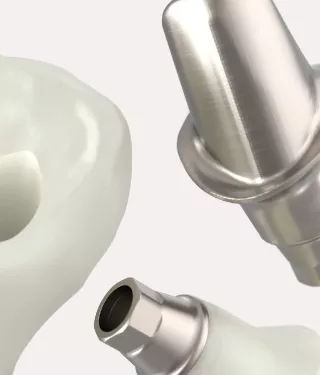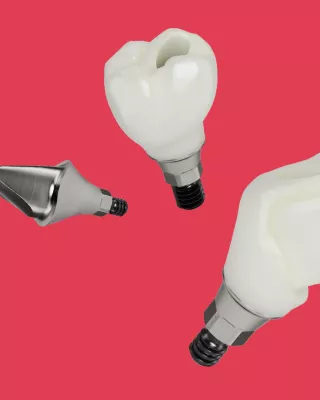
“NobelProcera individualized abutments offer excellent prosthetic survival and a low rate of complications while delivering patient and clinician satisfaction with the esthetics of the restoration.”

Dr. Lane has more than 20 years of experience as a clinician at Queensway Dental Clinic under his belt. In this interview, he outlines the promising 3.7 ± 2.7 years follow-up results of a retrospective, multicenter clinical study of Nobel Biocare’s individualized NobelProcera abutments with 4 different designs.

Excellent prosthetic survival and low complication rate with 463 CAD/CAM NobelProcera® abutments
96.5% patients and 98.3% clinicians were satisfied with the restoration
463 individualized NobelProcera abutments with 4 different designs: 98.1 % prosthetic survival rate and only 1.5% technical complications after up to 6.4-year follow-up
Implant connection type did not associate with the risk of prosthetic failure.
Dr. Lane, please tell us a bit about yourself and your professional background
I qualified with an Honours degree from Newcastle University in 1998. In 2001, I was awarded the MFGDP qualification and this was followed by the Diploma in Conscious Sedation in 2002 from Newcastle University. I have developed an interest in implant and reconstructive dentistry and have been very active in postgraduate education in this field since attending a Nobel Biocare Implant Introduction in 2002. Since 2006 I have been a partner at Queensway Dental Clinic and responsible for ensuring high standards of dental care are provided for all NHS and private patients. I have been involved in some university research projects in implant care and conscious sedation.
What is the aim of this study?
This is a multi-center retrospective study looking at the complication rates for customized prosthetic abutments and it is a real-world data from four centers in Italy, Germany, Holland, and the UK.
Why is a fully screw retained solution important?Is there any indication for potential long-term outcomes?
As a clinician, it is really important to try and have a fully screw retained solution in nearly all cases.
Certainly in our practice, the ASC angled abutment is something that we've used for a long time.
Alongside the clinic, we have a laboratory that was beta testing the ASC abutment in 2014. Since then, we've been using that as our routine restoration for many implant cases.
In fact, in the last five years, the laboratories delivered over 2000 single-unit ASC abutments to internal clinicians and external clients.
This is a very stable and well tested solution for us. As you can see on the study, we've got over 460 abutments across a wide range of implant types, all from Nobel Biocare, and a wide range of abutment types as well. Procera ASC titanium, and zirconia, full contour, and the ASC connection.
What are the conclusions?
The conclusions really match with very low complication rates that we found in our own clinical practice. There is 98% prosthetic survival and only 9 failures.
In clinical practice, we've audited also over nearly 1,300 ASC abutments and found very similar low complication rates.
Finally, clinician and patient satisfaction is high at 96% and 98%. In conclusion, industrially manufactured individualized abutments are offering excellent prosthetic stability, retrievability, and a low rate of complication with great patient and clinician satisfaction.